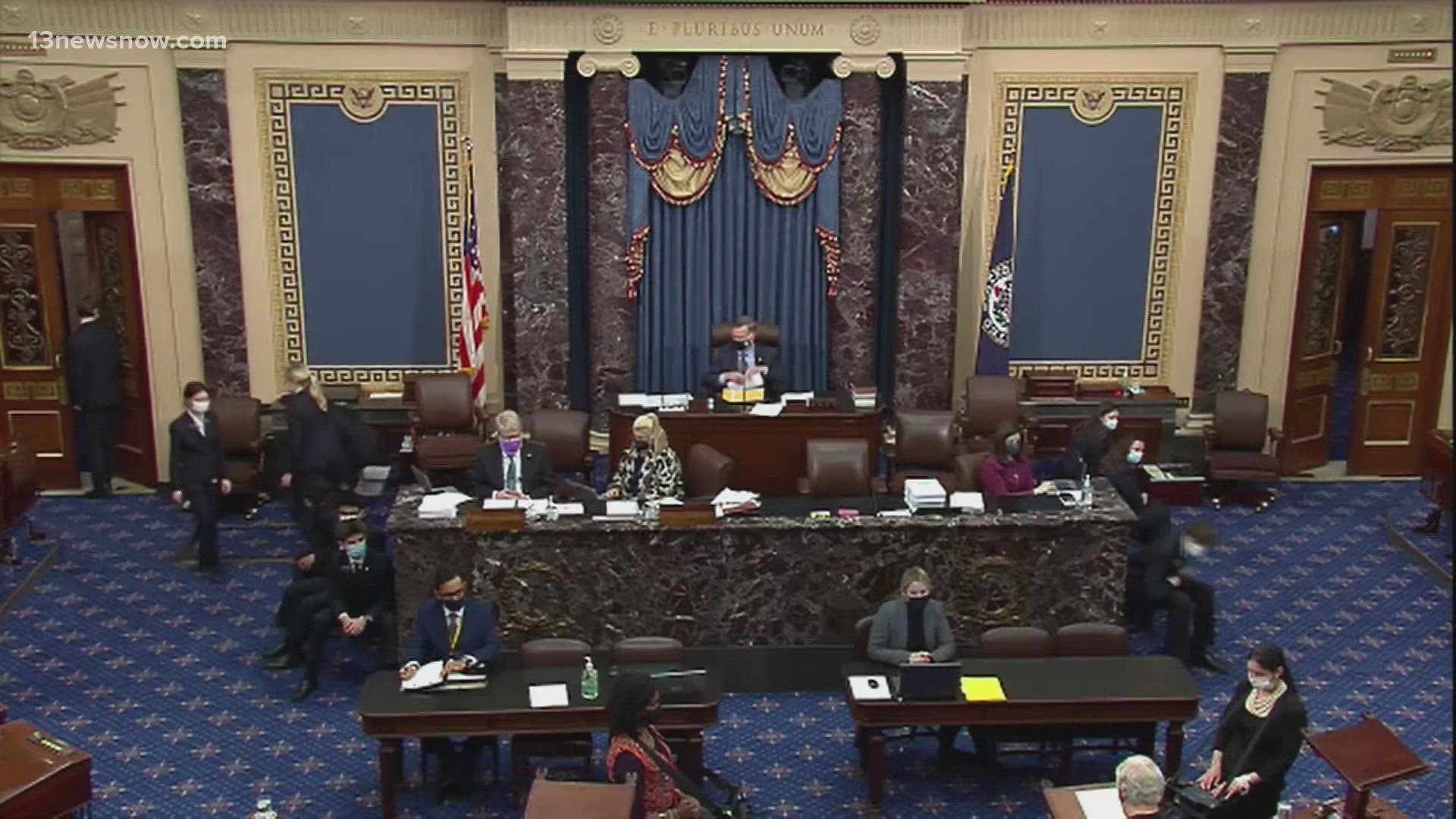WASHINGTON — The nation's single-most important military spending and policy bill has gone off the rails in Congress.
The National Defense Authorization Act (NDAA) establishes all military priorities for the coming year. But Monday night, Senate Republicans blocked the measure.
"The NDAA is not finished, so the Senate is not finished," said Senate Minority Leader Mitch McConnell (R-KY). "We need the same kind of normal, robust, bipartisan amendments process that always characterizes this bill."
Senate Republicans demanded more time to consider amendments.
The annual NDAA has passed the Senate for 60 consecutive years, but the measure hit a snag when the 45-51 vote fell well short of the 60 votes needed to advance.
The finger-pointing continued on Tuesday.
"Republicans blocked legislation to support our troops, support their families, keep Americans safe and support jobs across the entire country," said Senate Majority Leader Chuck Schumer (D-NY).
Whatever happens with the defense bill, it has a big impact in Hampton Roads, where 40 percent of the local economy is tied up in Department of Defense spending.
Nowhere could the impact be felt more than on the Hampton Roads waterfront, where more than 285 companies and five major private shipyards employ more than 60,000 people and contribute $6.4 billion to the regional economy.
It's something Old Dominion University economist Bob McNab is worried about.
"It's just another sign of how dysfunctional Washington, DC is, and unfortunately, while they're writing the checks, it's Hampton Roads that's going to pay the bill in terms of economic impact," he said.
Senators have filed more than 700 amendments to the defense bill. One of them would permanently close the Navy-run detention facility at Guantanamo Bay in Cuba.
Sen. Dick Durbin (D-IL) argued that the indefinite holding of detainees, without trials, goes against the very ideals of liberty that the United States was founded upon.
"And every day it remains open is an affront to our system of justice and the rule of law," he said. "It is where due process goes to die."
At its peak, in the days after 9/11, Gitmo held around 680 terrorist suspects
Today, that number is down to 39 detainees housed there, at a cost to taxpayers of $500 million per year.
In addition to the NDAA, Congress must also pass a Continuing Resolution by Dec. 3 to keep the government from closing, and it must also vote by mid-December to increase the borrowing limit to keep the United States from going into default.

